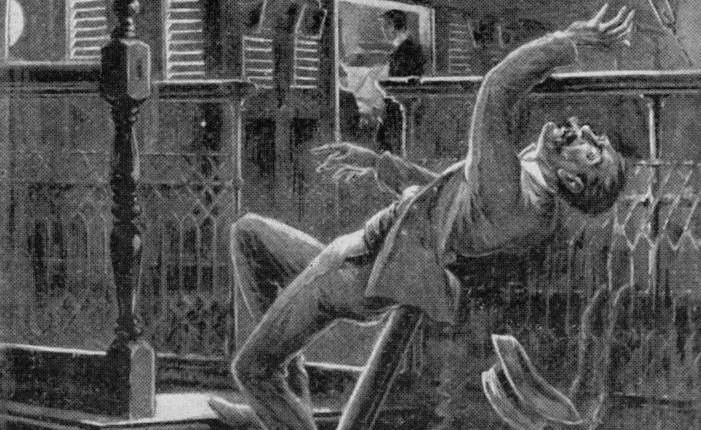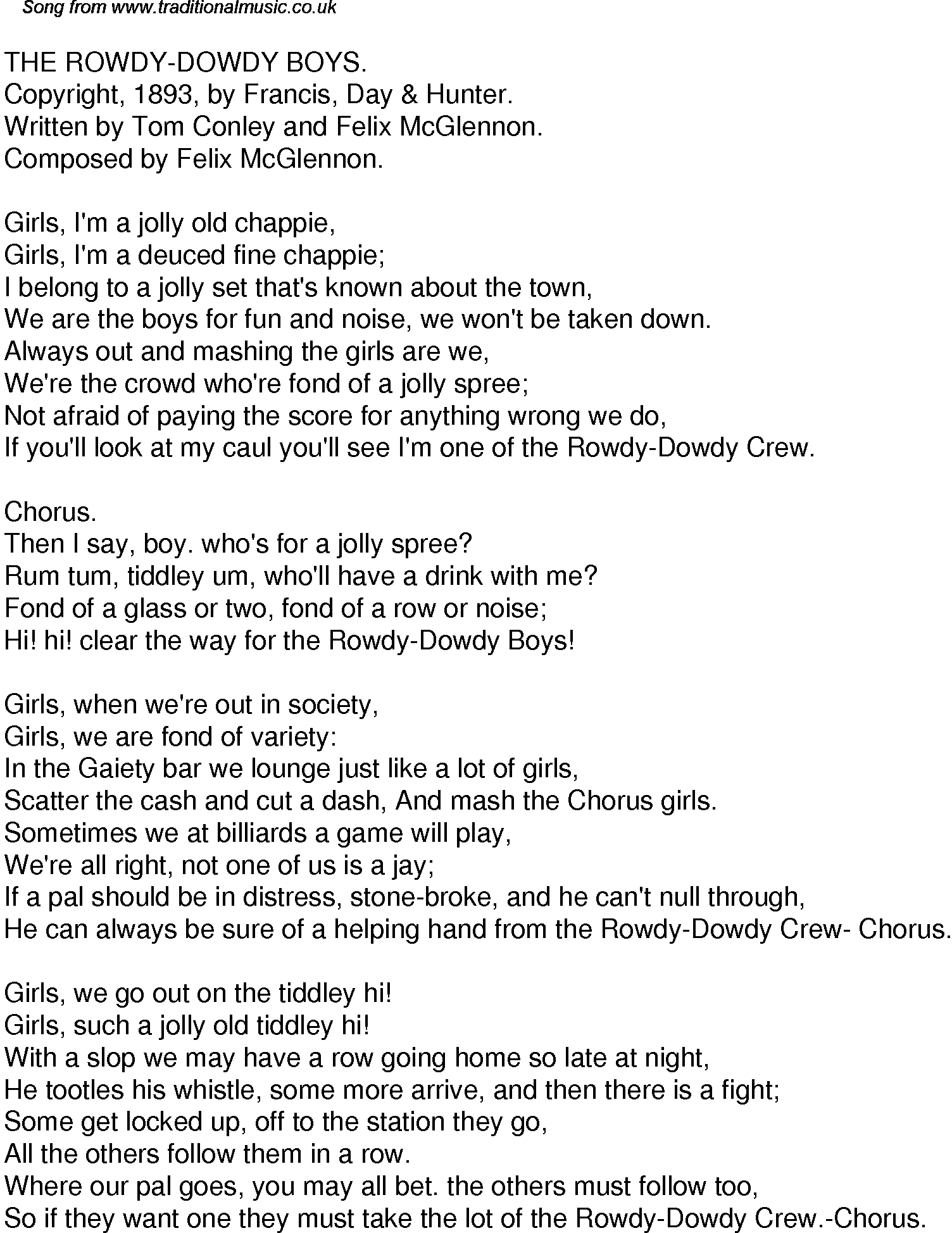William Peter Blatty, the author of The Exorcist, has an eccentric style that is marked by his tendency to create similes and metaphors that unite concrete and abstract terms. This practice is so commonplace in his novel as to indicate that it is more than merely a technique; it is essential to his narrative voice and, therefore, part of both his novel’s point of view and its theme.
In just the prologue to his novel, he includes the following tropes, each of which combines the physical and the spiritual, the literal and the figurative, the concrete and the abstract:
- a “premonition clung to his [Father Merrin’s] back like chill wet leaves” (3);
- “[the] tell had been sifted, stratum by stratum, its entrails examined, tagged and shipped” (3);
- “he dusted the thought like a clay-fresh find but could not tag it” 4);
- “slippers, [the] groaning backs [of which] pressed under his heels” (4);
- “shoes caked thick with debris of the pain of living” (4);
- “The Kurd stood waiting like an ancient debt” (4);
- “a splintered table the color of sadness” (5);
- “he waited, feeling at the stillness” (5);
- “the fractured rooftops of Erbil hovered far in the distance, poised in the clouds like a rubbled, mud-stained benediction” (5);
- “it [“safety” and “a sense of protection and deep well-being”] dwindled in the distance with the fast-moving jeep” (5);
- “some dry, tagged whisper of the past” (5-6);
- “its dominion was sickness and disease” (6); “the bloody dust of its predestination” (7-8);
- “icy conviction” (8).
The man in khaki shook his head, staring down at the laceless, crusted snows caked thick with debris of the pain of living. The stuff of the cosmos, he softly reflected: matter; yet somehow finally spirit. Spirit and the shoes were to him but aspects of a stuff more fundamental, a stuff that was primal and totally other (4).This paragraph suggests that Father Merrin does not view reality in dualistic terms, as consisting of matter and of spirit, both of which are real. Rather, he is a monist, someone who believes that reality consists of only one essential element, although this element can appear to have two distinct expressions, that of matter and that of spirit. Truly understood, however, each is a mere shadow, as it were, of the one, true “stuff,” which is “more fundamental” and “totally other,” which is, in religious terms, God. According to Father Merrin's faith as a Catholic, God is omnipresent, or everywhere present at once; therefore, the Spirit of God penetrates, if it does not actually embody, all things, shoes and “spirit” alike. If matter and spirit, like matter and energy, are interchangeable with one another, the body which housed a human soul in the distant past may now be mere bones, an artifact among other artifacts, as Blatty’s inclusion of human bones in his catalogue of other relics at the outset of the novel’s prologue indicates:
The dig was over. The tell had been sifted, stratum by stratum, its entrails examined, tagged and shipped: the beads and pendants; glyptics and phalli; ground-stone mortars stained with ocher; burnished pots. Nothing exceptional. An Assyrian ivory toilet box. And man. The bones of man. The brittle remnants of cosmic torment that had once made him wonder if matter was Lucifer upward-groping back to his God. And yet now he knew better. . . (3-4).The “he” in the final sentence of this paragraph might seem ambiguous: does it refer to Father Merrin or to humanity? Is it an individual or a universal perspective, the understanding that human skeletal remains do not signify a Luciferian “upward-groping back to. . . God?” The ambiguity is resolved almost as soon as it arises, if it does, in fact, arise at all, by the context of the paragraph in which the personal pronoun appears, for the paragraph speaks not of the priest, but of humanity: “he,” therefore, refers to “man,” not to Father Merrin, whose own point of view is very different, as one may already have discerned, than the worldview implied by metaphysical dualism, which sees both matter and spirit as opposite, if not opposing, realities, whereas Father Merrin sees them as both but “aspects of a stuff more fundamental, a stuff that was primal and totally other,” or as expressions or, perhaps, indications, of a transcendent divinity.
Blatty’s mixing of the concrete and the abstract also has the effect of making the latter seem more substantial, even more sensual, than it might be if it were linked, in simile or metaphor, to other abstract, rather than with concrete, terms. A “premonition” that clings to one’s “back like chill wet leaves” can be felt: it is thick and wet, clammy and cold; a “tell” that has “entrails” is a living thing—or, perhaps, a once-living thing, murdered by the archaeologists as much as by time, in order that it might be dissected, and its ancient artifacts, including the “bones” of “man” examined and catalogued; “stillness” that can be felt is tangible, indeed.
By mixing the concrete and the abstract, Blatty breathes life, as it were, into dry and withered concepts and sensations, giving them the “flesh” of sensual qualities that can be seen, heard, smelled, tasted, and touched; at the same time, his marriage of matter and spirit suggests the monistic metaphysics that Father Merrin believes expresses the reality of a wholly “other” God who transcends both and yet, paradoxically, somehow also brings the two “aspects” of reality and, indeed, of divinity, together in himself, just as, in the same cosmic sense, Jesus Christ brings matter—the flesh—and spirit together as the incarnation of God.
It is the notion that God is not physical or spiritual, but other, that Father Karras has not yet understood. Therefore, for him, the physical and the fleshly aspects of human existence are grotesque and offensive, as is seen in Father Karras’s reaction to a homeless man, whom he sees as vile. Karras has come, of late, to doubt his faith, partly because of the concrete embodiment of sin in human flesh and partly because of the reality of evil, which is also often associated with the physical and corporeal aspects of existence. The priest sees the decadence of sin in the person of a homeless man who pleads with him for alms:
. . . He could not bear to search for Christ again in stench and hollow eyes; for the Christ of pus and bleeding excrement, the Christ who could not be. . . (51).Father Karras seems to equate human existence, or its fleshly aspect, at least, with evil:
A harried man with many appointments, the Provincial had not pressed him for the reasons for his doubt. For which Karras was grateful. He knew that his answers would have sounded insane: The need to rend food with the teeth and then defecate. . . . Stinking socks. Thalidomide babies. An item in a paper about a young altar boy waiting at a bus stop: set on by strangers; sprayed with kerosene; ignited. . . (54).He has not yet attained the revelation that Father Merrin has experienced. Once, like Father Karras, the older, in some ways worldlier, Father Merrin found it difficult to love his neighbor as himself and to see in the human face and form the image and likeness of God; he has since overcome this stumbling block to faith, just as he has come to understand that evil is an offense to the goodness of God, not a quality inherent in mere matter or fleshly existence:
. . . The old man in khaki looked up into eyes that were damply bleached as if the membrane of an eggshell had been pasted over the irises. Glaucoma. Once he could not have loved this man (3).Indeed, it might be argued that Father Merrin has come to love the downtrodden and the oppressed because of their suffering, because of the evil in the world. Unlike Father Karras, who believes that demons are merely personifications of various evils, Father Merrin knows that the “Legion” of demons that claim to haunt Regan MacNeil are lying, that “there is only one,” the enemy of God, for Father Merrin has encountered—indeed, has fought—him before, in the guise of the demon Pazuzu, and knows that the true identity of the demon represented by the idol with the “ragged wings; taloned feet; bulbous, jutting, stubby penis and a mouth stretched taut in feral grin” is none other than Satan himself, the source and living embodiment of evil.
Father Karras is a materialist—or is in danger of becoming one. As such, he is obsessed with the physical, the fleshly, disease, and death; he is close to believing that only matter is real; and he has come to believe that evil is explainable in natural terms, as the effects of organic malformations of the brain or other physiological abnormalities.
Father Merrin, as a monist, accepts both the material, including the fleshly, and the spiritual as real, believing them to be but two aspects of a higher, unknowable “stuff” that is “totally other” than either of them and that evil is essentially nothing more than an offense to God. He is able to love Regan, despite the horrific onslaught of the demon—or the devil—who assaults her from within, often by the vilest and most corporeal means available to him—Regan’s own body.
Father Karras, on the other hand, is reluctant to seek “Christ again in stench and hollow eyes; for the Christ of pus and bleeding excrement.” It is only after he understands that God is beyond good and evil but is himself the essence of love that Father Karras can love Regan, in all her humanity, the way that Father Merrin has come to love human beings, whether a Kurd or the daughter of an actress who is temporarily residing in Georgetown. It is then that Father Karras can be the exorcist he has been called upon to be and can deliver the child whose body has been both a source of demonic violation of a temple of the Holy Spirit and a stumbling block to his own faith.
By mixing the concrete with the abstract in the peculiar similes and metaphors that appear frequently throughout his novel, Blatty brings together the material and the spiritual, making the former seem as tangible as the latter and suggesting one of his novel’s themes, which is that both aspects of reality find resolution, if not synthesis, in a higher, “totally other” form of being.
Source of quotations: Blatty, William Peter. The Exorcist. New York: Harper & Row, 1971. Print.









.jpg/170px-Francisco_de_Goya%2C_Saturno_devorando_a_su_hijo_(1819-1823).jpg)

























